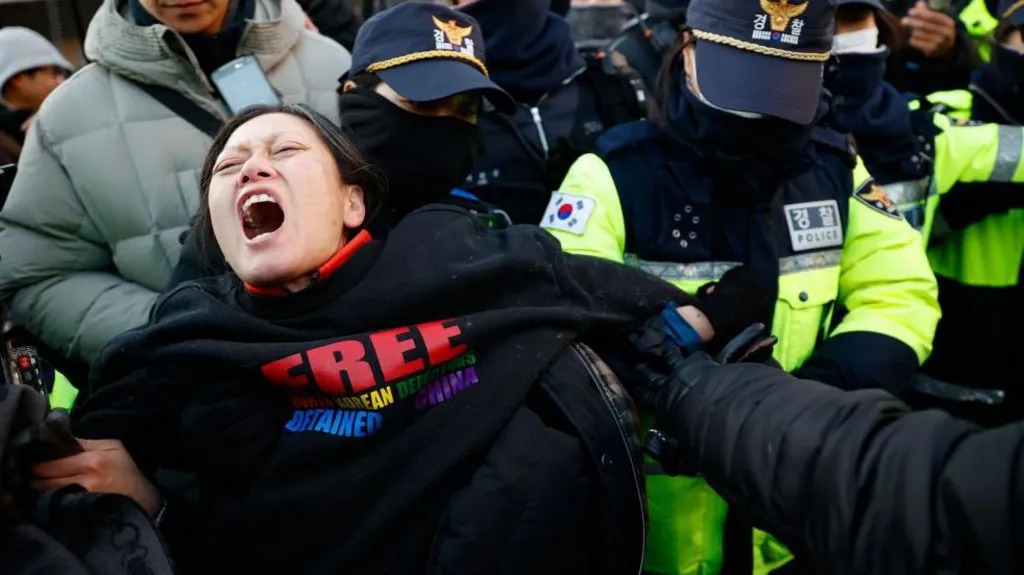
A Political and Legal Quagmire
Yoon’s Fall from Power
Yoon Suk Yeol’s troubles began with his shocking declaration of martial law on 3 December, followed by an impeachment vote and a criminal investigation. Now suspended from office, Yoon faces the possibility of removal by the constitutional court and an arrest warrant that expires on 6 January.
Divided Public Opinion
While most South Koreans agree that Yoon’s martial law order was wrong, opinions vary widely on how he should be held accountable, adding to the political uncertainty and fueling tensions.
The Role of the Presidential Security Service (PSS)
A Wall of Resistance
Yoon’s security team has played a pivotal role in blocking his arrest. Although Yoon has been stripped of his powers, the PSS remains loyal, forming a human barrier and using vehicles to obstruct police.
Factors Behind the PSS Loyalty:
- Leadership Ties: PSS Chief Park Jong-joon, appointed by Yoon, is seen as a hardline loyalist.
- Loyalty vs. Legal Duty: Critics argue the PSS’s actions reflect allegiance to Yoon rather than the presidency itself.
Risks of Escalation
Why Force Isn’t an Easy Option
The standoff outside Yoon’s residence has highlighted the dangers of escalation:
- Potential Violence: Both the PSS and law enforcement are armed, raising concerns about clashes if police attempt to arrest Yoon by force.
- Public Unrest: Yoon’s supporters, camped outside his residence, could exacerbate tensions if arrests are attempted.
Legal Maneuvers Underway
Authorities are now investigating the PSS director and deputy for obstructing justice, potentially issuing further arrest warrants.
Broader Implications for South Korean Politics
A Nation in Uncharted Territory
Yoon’s case is unlike any in South Korea’s history:
- Unique Precedent: He is the first South Korean president to face arrest while still in office.
- Impact on Institutions: The Corruption Investigation Office (CIO), tasked with investigating Yoon, is still relatively new and faces pressure to navigate this unprecedented situation.
Lessons from the Past
South Korea’s previous impeached presidents, such as Park Geun-hye, were jailed after leaving office. Yoon’s case underscores a shift toward immediate accountability but also exposes institutional vulnerabilities.
What Happens Next?
Arrest Deadline Looms
Authorities have until 6 January to execute the current arrest warrant. Options include:
- Weekend Attempts: A renewed effort to arrest Yoon, though larger crowds could complicate enforcement.
- New Warrant: Applying for a fresh warrant to extend the timeline.
Future Challenges
South Korea’s political polarization, combined with institutional constraints, means the situation is unlikely to resolve soon.
Conclusion
Navigating Political Turbulence
The difficulty in arresting Yoon Suk Yeol reflects deep divisions in South Korean politics and society. As authorities balance legal obligations, public opinion, and the risk of escalation, the road ahead remains uncertain.
External and Internal Links
- External Link: Learn more about South Korea’s political crisis
- Internal Link: Explore global political upheavals and their impact





